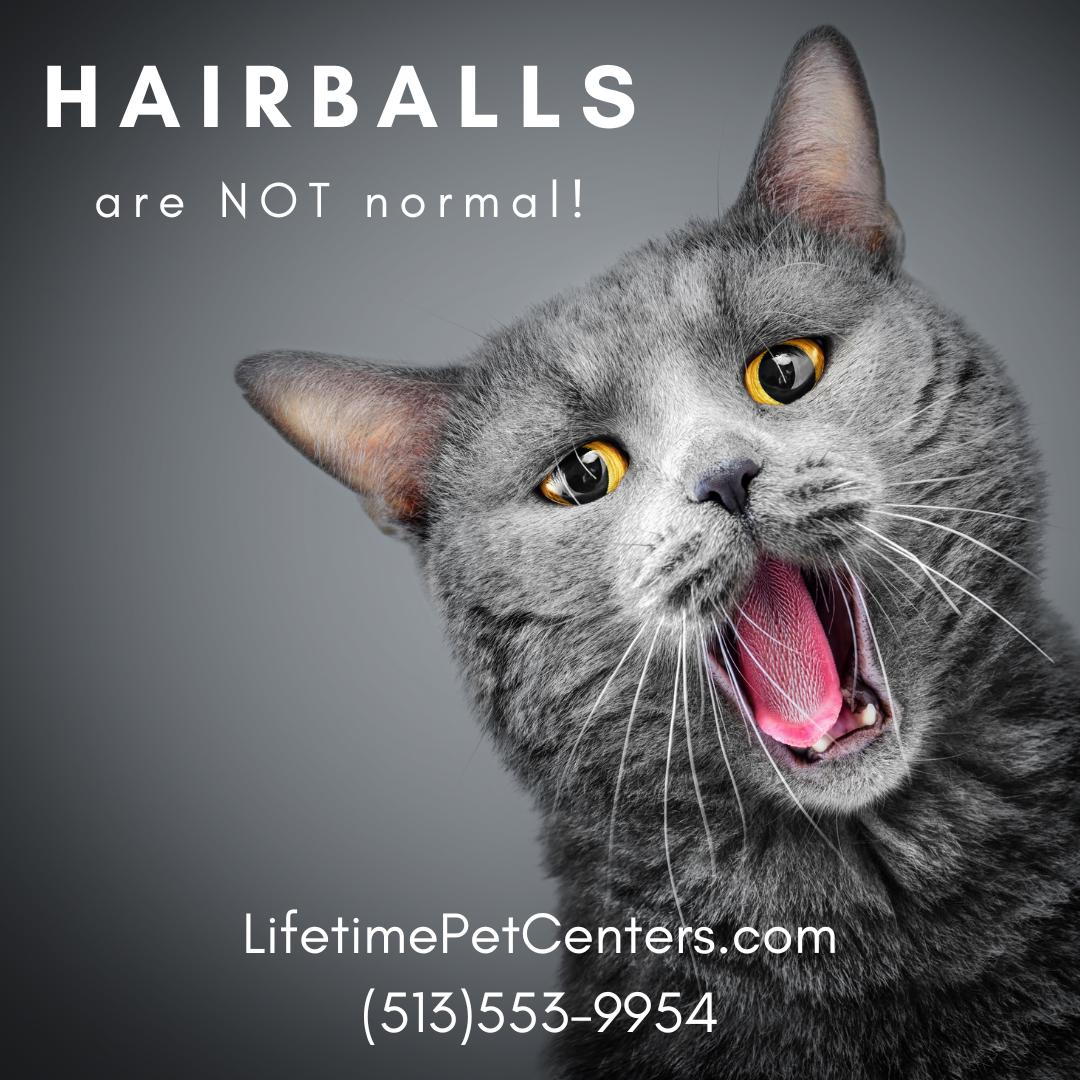
All cat owners know the pleasure of waking up in the middle of the night to the sound of retching and vomiting when their cat coughs up a hairball (also known as a trichobezoar). This situation is not uncommon, but we advise cat owners against thinking that hairballs are “normal.” The majority of the time hairballs are produced from the routine grooming behavior of your cat, especially in longer-haired breeds. However, if your cat starts producing hairballs more frequently, or in greater volume, it may be time for a check-up.
It is possible for a cat to swallow so much hair in a short time that it creates a GI obstruction either in the stomach where the hair cannot be passed by either defecation or vomiting, or the hairball is lodged in the intestines and cannot be passed via defecation. This is an emergency and you need to get your cat a veterinarian right away if you observe them not eating for 24+ hours, they are extremely lethargic, or if they have repeated episodes of unproductive retching and/or true vomiting. (Excessive retching can also be a sign of asthma in cats and also needs to be seen by a veterinarian right away).
Even in the event your cat does not suffer a GI blockage from hairballs, over grooming to produce a large amount of them can also be a sign of food allergies, environmental allergies, flea infestation, or stress- and your cat should be evaluated so that relief can be provided.
Treatments & Preventions to Help Prevent Hairball Production:
-Brush your cat daily and bathe as needed to reduce the amount of loose hair they swallow when they groom themselves.
-Use pet safe brushes and shampoo/conditioner. In the event of allergies, there may be topicals we can recommend to prevent itching in your cat (but be careful with over the counter products that may not be approved for cats, making them unsafe to ingest).
-After ruling out medical causes for hairballs, you can consider switching your cat to a hairball prevention diet or daily supplement. Do not start laxatives without first consulting with a veterinarian.
-Treat the underlying causes of your cat’s excessive grooming if needed (fleas, allergies, stress, etc.).
Remember: hairballs are not uncommon, but they are not normal and can be a sign of a more serious medical issue for your cat. Monitor changes in behavior closely, and call or text us with any concerns you may have. We are here to help you on your pet’s lifetime health journey.
(513)553-9954
LifetimePetCenters.com
Download Our App
Sarah M., VCC, CFVP
Practice Manager